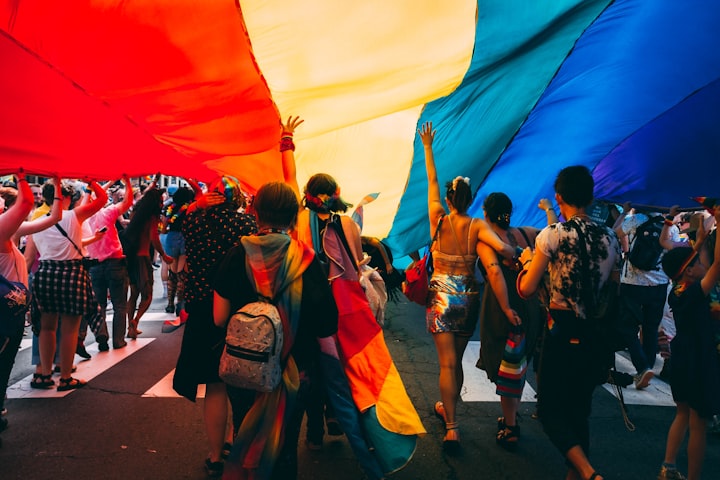Why June?
From Stonewall to Pride Parades: Paving the Path to LGBTQ+ Acceptance

Once upon a time, in the heart of New York City's Greenwich Village, a nondescript bar named the Stonewall Inn stood as a symbol of hope, resistance, and the birthplace of a movement that would change history forever. It was the late 1960s, a period of immense social upheaval, and the LGBTQ+ community found themselves on the front lines of a battle for acceptance and equal rights.
The Stonewall Inn was a haven for those who were marginalized and oppressed due to their sexual orientation or gender identity. It provided a space where they could be themselves, free from the judgment and discrimination that plagued their everyday lives. However, on one fateful night in June 1969, the patrons of the Stonewall Inn had had enough.
A routine police raid turned into a moment of defiance and resistance. The LGBTQ+ community fought back, tired of being harassed and treated as second-class citizens. The spirit of Stonewall ignited a fire that spread throughout the nation and beyond, galvanizing a movement that demanded justice and equal rights for all.
In the aftermath of that pivotal night, the LGBTQ+ community refused to be silenced. Activists emerged from the shadows, their voices echoing through the streets, demanding visibility, recognition, and acceptance. They organized protests, demonstrations, and rallies, fueled by a collective determination to create a world where love knows no boundaries.
One of the most potent and visible manifestations of this burgeoning movement came in the form of Pride parades. These vibrant and jubilant celebrations became a global phenomenon, drawing people from all walks of life to show their support for LGBTQ+ rights. From the iconic rainbow flags to the resounding chants of "Love is Love," Pride parades were more than just festivities; they were an embodiment of the struggle and triumph of a community that had fought for their place in society.
Real-life examples of the transformative power of Pride parades abound. Take the historic Stonewall 50 WorldPride in 2019, which marked the 50th anniversary of the Stonewall uprising. It brought millions of people together in New York City, reaffirming the spirit of unity and resilience that began in that very neighborhood half a century before. The viral hashtag #Stonewall50 flooded social media platforms, capturing the attention of people worldwide and highlighting the ongoing fight for LGBTQ+ acceptance.
Pride parades have also become a platform for advocacy and education. They showcase the diversity within the LGBTQ+ community, from drag queens and transgender activists to families and allies standing in solidarity. These parades create safe spaces where individuals can embrace their true selves, find acceptance, and forge connections with others who have shared similar experiences.
The impact of Pride parades extends beyond the parade route. They generate immense media coverage, allowing LGBTQ+ stories and issues to reach a broader audience. Viral videos and images capture moments of love, courage, and resilience, inspiring others to question their biases and embrace diversity. From the powerful "Love Has No Labels" campaign to the joyous marriage proposals amidst the sea of rainbow-colored floats, these viral moments serve as reminders that love and acceptance transcend boundaries.
However, the journey towards full LGBTQ+ acceptance is far from over. While progress has been made, discrimination, prejudice, and systemic barriers persist in many parts of the world. Pride parades continue to be a crucial tool for visibility and advocacy, reminding society that the fight for equality is far from over.
In conclusion, from the humble beginnings and the preserverance shown by those at the Stonewall Inn to the dazzling spectacles of Pride parades around the world, the LGBTQ+ community has paved the path to acceptance through courage, blood, sweat and tears.





Comments
There are no comments for this story
Be the first to respond and start the conversation.